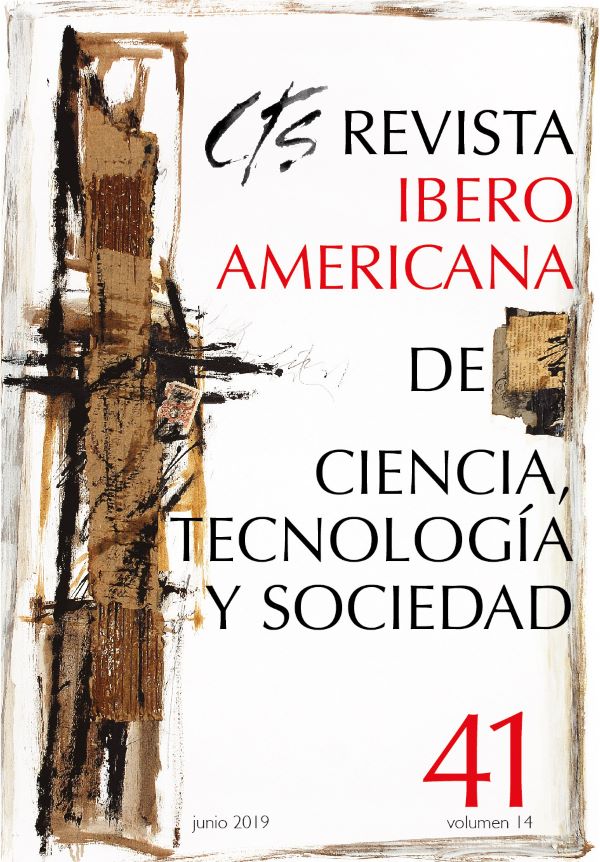Cuidando a casa comum: experiências de sala de aula com estudantes do primeiro semestre de engenharia
Palavras-chave:
educação para a sustentabilidade, experiências de aula, pegada ecológicaResumo
A Universidade Pontifícia Bolivariana (UPB) é uma universidade de docência com ênfase na pesquisa e inovação para a sustentabilidade. Promove a construção de estratégias que permitam transformar e projetar nossos interesses comunitários pelo cuidado da casa comum, nosso planeta, gerando impactos positivos no campo social, econômico e ambiental. Seguindo a perspectiva com foco na educação para a sustentabilidade, a partir do curso de química geral voltado para alunos do primeiro semestre de engenharias, são desenvolvidas, desde 2013, experiências na sala de aula para a análise dos hábitos de consumo e da medição da pegada ecológica pessoal dos alunos – que, segundo Wackernagel e Rees, é uma ferramenta que ajuda a planejar a sustentabilidade –, como também trabalhos de sensibilização perante o uso de aparelhos elétricos e eletrônicos e a gestão de resíduos. Os educandos propuseram medidas voltadas, principalmente, para a racionalização de recursos, mudanças nos estilos de alimentação e na forma de se transportar. Desde o primeiro período acadêmico de 2017, realizam ações sociais, como coleta de resíduos sólidos, e campanhas educativas com crianças do ensino fundamental. O trabalho realizado favoreceu nos jovens a criação de uma consciência comprometida com o cuidado da nossa única casa: a Terra.Downloads
Referências
BERMÚDEZ, O. (2003): Cultura y Ambiente. La educación ambiental, contexto y perspectivas, Bogotá, Universidad Nacional de Colombia, Instituto de Estudios Ambientales.
GARCÍA, R. y VEGA, P. (2009): Sostenibilidad, valores y cultura ambiental, Madrid, Ediciones Pirámide.
GIL, D. y VILCHES, A. (2011): “Problemas ambientales y sostenibilidad”, en A. Caamaño (coord.): FISICA Y QUIMICA Complementos de formación disciplinar, Barcelona, Editorial Graó, pp. 126-151.
MINISTERIO DEL MEDIO AMBIENTE Y MINISTERIO DE EDUCACIÓN NACIONAL (2002): Política Nacional de Educación Ambiental SINA. Disponible en: http://cmap.upb.edu.co/rid=1195259861703_152904399_919/politica_educacion_amb.pdf. Consultado el 14 de febrero de 2018.
OTERO, A. y BRUNO, C. (2010): Taller de educación ambiental: Actividades y juegos didácticos para docentes de todos los niveles, Buenos Aires, Ediciones Novedades Educativas.
VÁSQUEZ, C. (2004): “Reflexiones y ejemplos de situaciones didácticas para una adecuada contextualización de los contenidos científicos en el proceso de enseñanza”, Revista Eureka sobre Enseñanza y Divulgación de las Ciencias, vol. 1, no 3, pp. 214- 223. Disponible en: https://revistas.uca.es/index.php/eureka/article/view/3949/3518. Consultado el 12 de febrero de 2018.
WACKERNAGEL, M. y REES, W. (2001): Nuestra Huella Ecológica: Reduciendo el impacto humano sobre la tierra, Santiago de Chile, Editorial LOM.
Downloads
Publicado
Como Citar
Edição
Seção
Licença
Todas os números de CTS e seus artigos individuais estão sob uma licença CC-BY.
Desde 2007, a CTS proporciona acesso livre, aberto e gratuito a todos seus conteúdos, incluídos o arquivo completo da edição quadrimestral e os diversos produtos apresentados na plataforma eletrônica. Esta decisão é baseada no entendimento de que fornecer acesso livre aos materiais publicados ajuda a ter uma maior e melhor troca de conhecimentos.
Por sua vez, em se tratando da edição quadrimestral, a revista permite aos repositórios institucionais e temáticos, bem como aos sites pessoais, o autoarquivo dos artigos na versão post-print ou versão editorial, logo após da publicação da versão definitiva de cada número e sob a condição de incorporar ao autoarquivo um link direcionado à fonte original.











